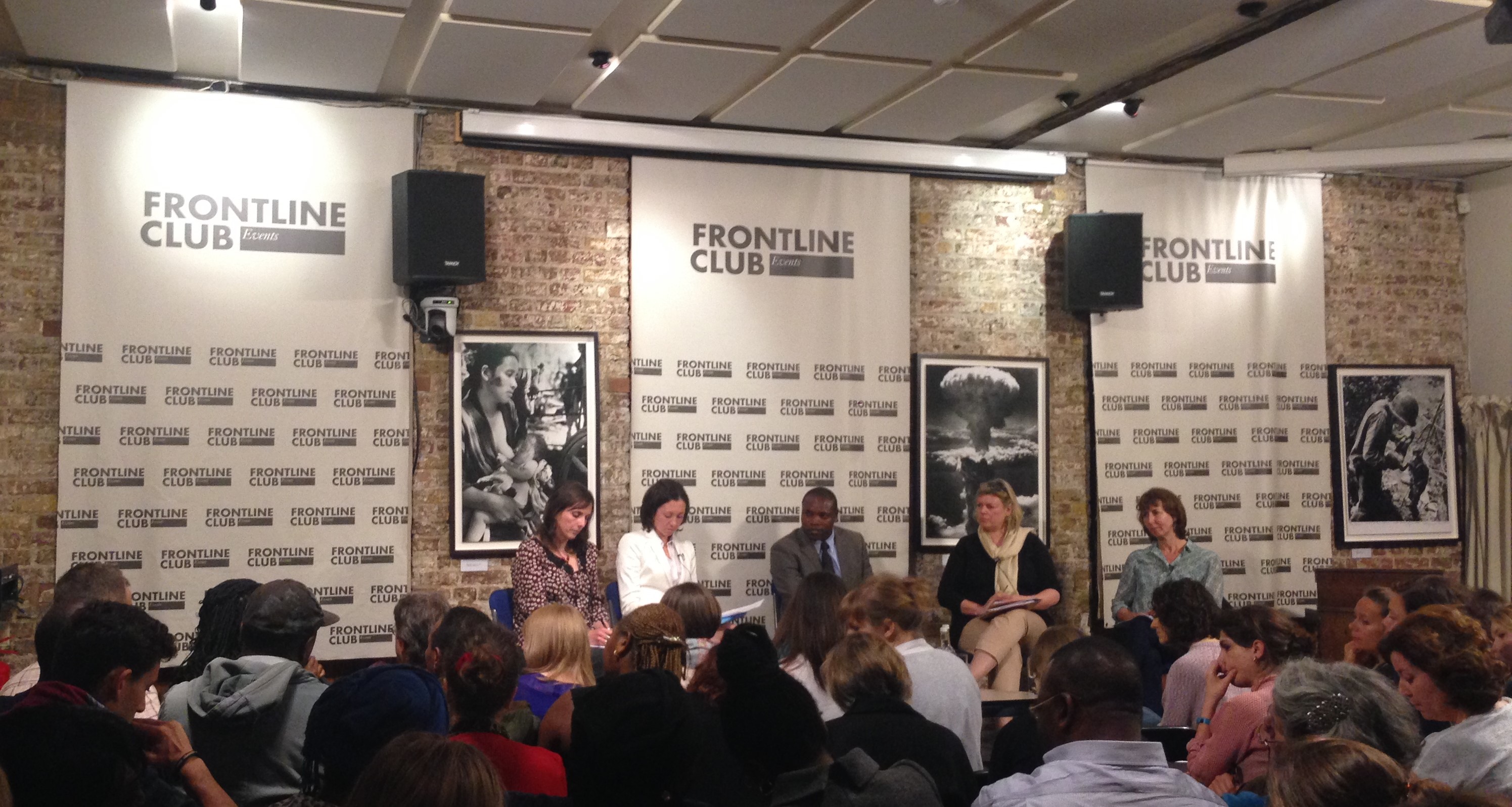 |
The Frontline journalists club in London held a discussion on 'Preventing and Responding to Sexual Violence in Conflict' on Tuesday, in the run up to Global Summit to End Sexual Violence in Conflict next week.
The panel, chaired by Liz Ford, deputy editor of the Guardian's Global Development website, consisted of Doctor Juliet Cohen, head of doctors at Freedom From Torture; award winning film maker Fiona Lloyd-Davies; Serge Eric, co-founder of Survivors Speak OUT! network and Sarah Cotton the public affairs and communications advisor for the International Committee of the Red Cross UK and Ireland.
The discussion with a focus on the Democratic Republic of Congo, also included Sri Lanka and Syria, exploring measures that can be taken to protect victims and respond to sexual violence in conflicts around the globe.
Dr Cohen began by talking on how even speaking out against sexual violence can be dangerous in parts of the world, with many facing the threat of violence for doing so. She went on to detail the fact that many choose simply not to talk about sexual violence – a point echoed by Serge Eric, whose network was set up by victims of such abuse.
“Even speaking in this country can be dangerous for the victim,” said Eric, noting that an environment in which they can speak out must be created. “It is important for us to bring our opinion about what we have gone through so that it doesn't happen tomorrow”.
Cotton reiterated the importance of implementing international humanitarian law adding that,
“Rape never takes place by accident, this isn't collateral damage, no-one mistakenly rapes. This can be a calculated act”.With the Global Summit to End Sexual Violence in Conflict to be held in London next week, Ford posed the question as to what tangible steps can be taken to prevent these atrocities from happening. Lloyd-Davies, whose documentary on the Congo “Seeds of Hope” will be screened at the summit, said this was a “great opportunity as long as something concrete is done”. Speaking on the summit Eric went on to comment that 'signing a piece of paper is easy and makes you look good – the problem is how to implement it”.
Lloyd-Davies said the summit did present an opportunity for sexual violence to be taken more seriously, adding that recent trials at the International Criminal Tribunal for the former Yugoslavia had charges of rape and war crimes have been dropped in some cases, in order to ensure quicker sentencing.
The combating of impunity was also a major issue that could be tackled by the summit noted Cotton, adding that sanctions may needed to do so. “There are rules of war, these are not abided by in many contexts”, she said, “but that doesn't mean we shouldn't continue to insists these are abided by”. “[This is] the first priority and standards we should expect... if they are not met we should take the next step”.
Questions from the audience mainly centred around the Congo, with members and the panel agreeing that the root cause of the conflict has to be solved, in order to put an end to sexual violence. An audience member from the Redress Trust also stated that Western governments have policies which may be seen as hypocritical if they continue to shelter suspected war criminals, stating that trials could take place, even if the alleged abuses occurred outside of the West.
Giving his final thoughts, Eric poignantly concluded that,
“Torture and rape is a calculated act... It is trying to put terror into someone or silence them. It doesn't just happen.”
